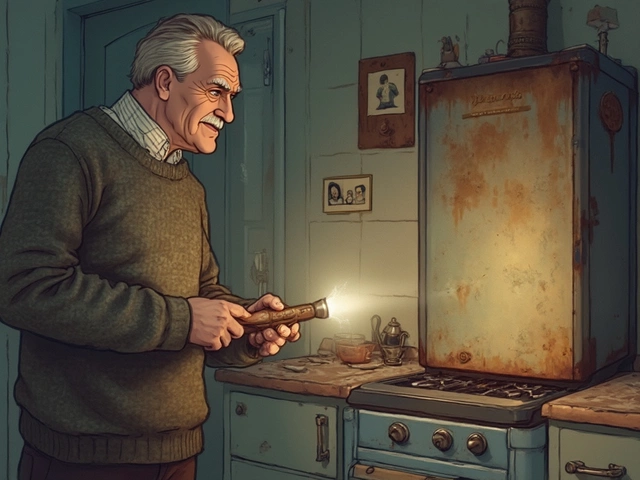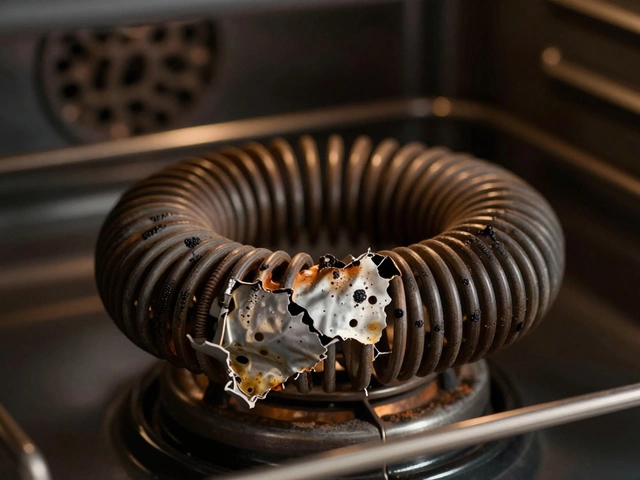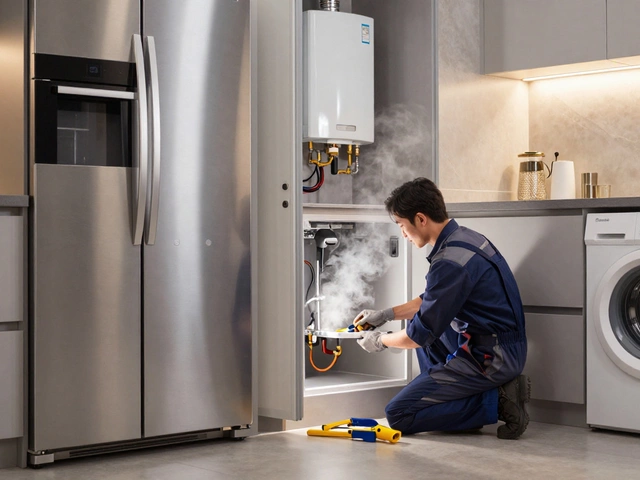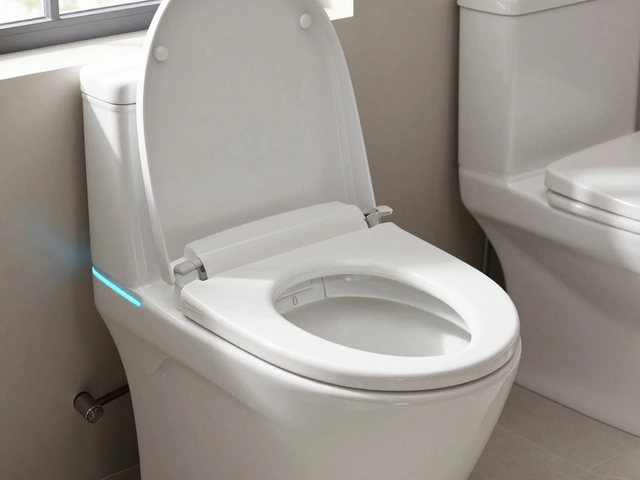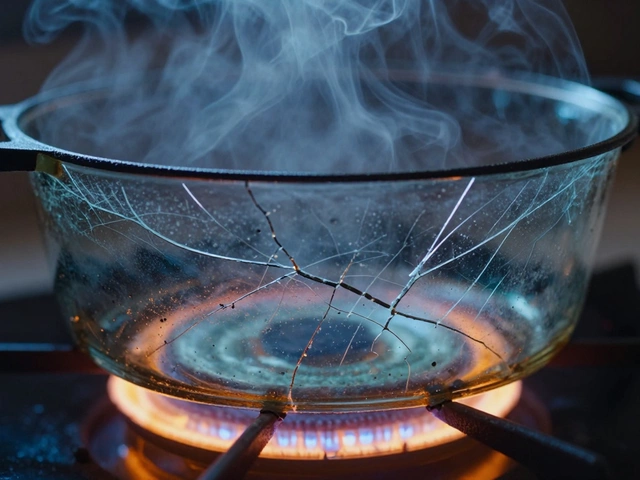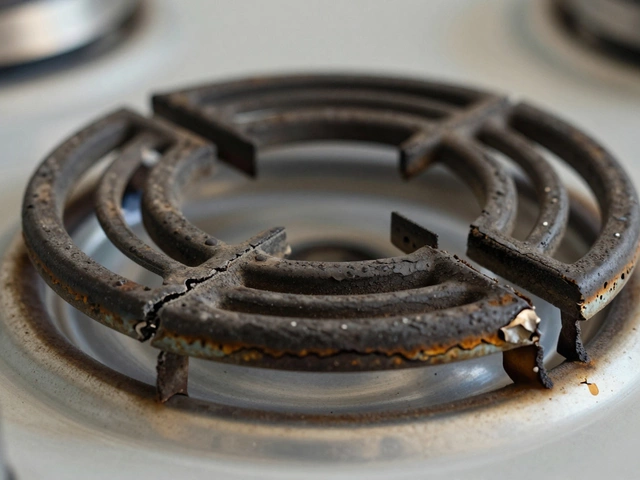There’s no household fixture quite as temperamental and essential in chilly months as the trusty boiler. Whether you're relying on it for heat, hot showers, or both, knowing how long this vital piece of equipment should last helps keep the shivers at bay.
A boiler's lifespan isn't just some random number thrown in by its manufacturer, it's influenced by several key factors including the type of boiler, how often it is used, and the commitment to regular maintenance checks.
Join us as we navigate the ins and outs of ensuring your home's boiler stays in top shape over the years. We'll cover practical tips, signs to watch for potential replacements, and just how critical proper upkeep is to extend the life of your heating heartthrob.
- Understanding Boiler Lifespan
- Key Factors Influencing Longevity
- Maintenance Tips to Extend Boiler Life
- Recognizing When Replacement is Needed
Understanding Boiler Lifespan
Every homeowner who has braved a cold snap knows the blessing of a reliable boiler. This contraption, nestled discreetly away, ensures warmth and comfort flow seamlessly through every room and faucet. Yet, how long do these indispensable heaters last before they demand change? While many might assume there’s a one-size-fits-all answer, the truth is far more nuanced and varies according to several underlying factors.
Typically, a well-maintained boiler is expected to last between 10 to 15 years. This range is influenced by the type of boiler in use, with gas boilers often outliving their oil-based siblings by a few years. Regular tune-ups and timely repairs usually push the lifespan towards the upper end. During such services, technicians can identify minor issues before they escalate into costly repairs or replacements, thus ensuring that your boiler runs proficiently for as long as possible.
Investment in a good quality boiler also plays a significant role. Well-known brands often provide models that are built to last, reason being the quality of materials used and technologies employed. It's crucial to assess the initial cost against the long-term benefits. A costlier boiler with better quality components may prove more economical over several years, due to reduced repair needs and lower fuel consumption.
"The trick isn't just in what you buy but how you maintain it," says Helen Atwood, an esteemed HVAC expert, "Treat your boiler as an investment worth protecting, and it'll reward you with years of service."
Moreover, environmental conditions can impact how long a boiler remains effective. In regions with hard water, limescale build-up can lead to decreased efficiency and increased wear over time. Using water softeners or incorporating a magnetic filter are cost-effective ways to tackle this issue, possibly increasing the boiler lifespan considerably. Climate plays a role too - colder climates where boilers are used more intensively tend to reduce lifespans.
Looking at energy efficiency ratings, modern high-efficiency boilers boast a longer operational timeline compared to older counterparts. These systems utilize advanced technology to maximize fuel use while minimizing wastage. Not only does this translate to lower energy bills, but it also lessens the environmental footprint. It's advisable for those with ancient models to consider updating to an energy-efficient alternative, which often pays for itself via utility savings.
In summary, understanding the expected duration a boiler might last isn’t simply about the appliance itself, but a ballet of factors encompassing maintenance, environment, type, and initial quality. By paying heed to these varied aspects, homeowners can ensure that their boiler systems remain operational and efficient for as long as possible.
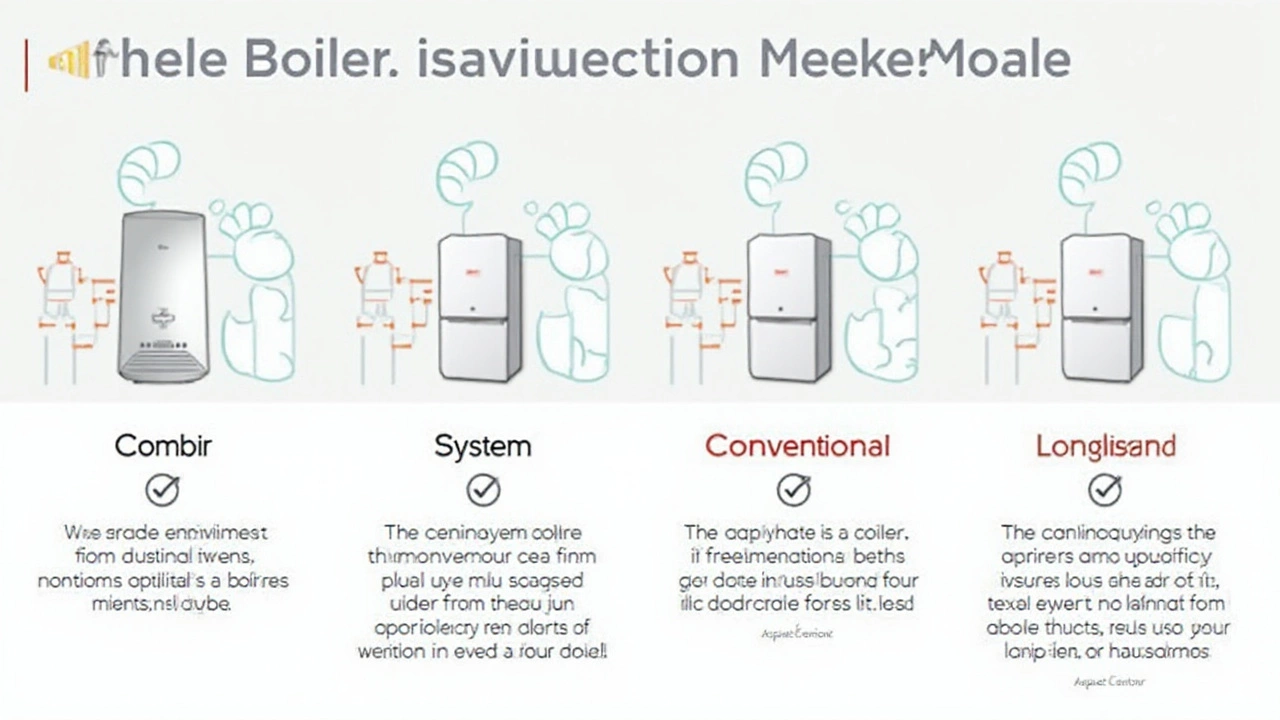
Key Factors Influencing Longevity
When considering the lifespan of a boiler, it's essential to recognize that numerous elements come into play. First and foremost, the type of boiler you have installed will significantly impact its longevity. Traditional gas and oil boilers typically offer around 10 to 15 years of service, with proper care and maintenance. On the other hand, newer models, such as condensing boilers, might have a slightly shorter life expectancy of around 12 years but offer higher efficiency rates. It's not just the boiler type but also the brand quality that matters. Well-known brands tend to provide durable units, often backed by reliable warranties that give peace of mind and longer-lasting boiler systems.
Another crucial factor is the frequency and quality of boiler maintenance. Regular upkeep by a qualified technician, at least annually, can spot potential issues before they turn into costly repairs. This proactive approach not only extends the lifespan but also ensures the unit runs safely and efficiently. Poorly maintained boilers are much more likely to experience breakdowns, reduce heating efficiency, and increase energy bills. As an example, dirty filters or blocked vents can put unnecessary strain on the system, reducing its life expectancy significantly to around 5-8 years instead of the 15 years it could achieve with regular care.
Water quality is yet another factor that many overlook. Hard water, incredibly common in many localities, can cause scaling inside the boiler system, leading to reduced heating efficiency and increased wear and tear, cutting the appliance's lifespan. If you live in a hard water area, considering installing a water softener can drastically improve your boiler's longevity, saving money and hassle in the long run. Interestingly, a 2020 study by the Energy Saving Trust found that implementing water filtration systems in homes extended the functional lifespan of household boilers by up to 25%. Now that's a stat to keep in mind.
The usage patterns of your home heating system also play a substantial role in determining how long your boiler will last. Continuous heavy use, particularly in larger households, can wear components faster than sporadic, moderate use. This doesn't imply you need to sit in the cold to preserve your boiler, but efficient energy use strategies, like using thermostatic radiator valves or smart thermostats, can ease the demand placed on your system. Overworking your boiler by keeping the heat high for extended periods, especially when not needed, can lead to increased pressure and wear, thus shortening its life.
"In terms of long-term performance, the fuel source can matter significantly," emphasizes John Bright from the International Energy Agency. "For instance, while gas boilers are prevalent, electric boilers tend to offer a longer lifecycle under certain conditions due to fewer moving parts,” he explains.
Becoming aware of these significant factors and managing them can extend the life of your boiler, ensuring that it not only delivers warmth but also reliability and peace of mind. All it takes is a bit of foresight and regular care to enjoy a boiler's full potential over its intended lifespan without frequent replacements and repairs interrupting your home's comfort.

Maintenance Tips to Extend Boiler Life
When it comes to extending the boiler lifespan, regular maintenance is your best friend. One cannot stress enough the importance of a diligent upkeep routine that can effectively stave off untimely repairs and cement a boiler’s rightful place in your home for years beyond expectations. Routine maintenance ensures not only the smooth functioning of the device but also contributes to overall safety. A well-maintained boiler is less likely to release harmful gases, such as carbon monoxide, making your home a safer space. First and foremost, it’s important to schedule a professional inspection at least once a year; this helps catch potential problems early when they’re most manageable. Professionals have the right tools and expertise to test different components and ensure everything runs like a well-oiled machine.
Now, the user's role in this partnership cannot be simply brushed aside. Regularly check the pressure levels of your home heating boiler to ensure it falls within the recommended range as depicted by the manufacturer. Pressure that’s too high or too low can wreak havoc on the internal workings and drastically reduce the boiler's lifespan. Flushing out your heating system periodically is another great practice; it prevents the build-up of mineral deposits which might impede heat transfer efficiency. Additionally, bleeding the radiator can go a long way in eliminating trapped air, thus preventing the system from overworking itself. Overworking often leads to premature wear that’s entirely preventable with these modest interventions.
Furthermore, keep an ear out for strange noises emanating from your boiler. Grating or banging sounds can be early warning signs of internal issues that necessitate immediate attention. It’s always better to deal with these problems sooner rather than later. To put things into perspective, a report by the World Health Organization noted that preventative maintenance could increase a boiler's lifespan by up to 30%, reducing chances of exposure to breakdowns during peak cold seasons. As your stalwart heating companion faces significant seasons of workload, an annual investment in its care can pay dividends in extending its service life.
An old proverb in the heating industry circles captures this perfectly: "Neglect is the rust that covers all things." Keeping that in mind may well be the mantra to follow for any prospective or current boiler owner striving for longevity.
Another key piece of advice is to replace worn-out parts immediately rather than waiting for them to fail completely. Broken components can cause a domino effect, damaging other parts of the system over time. Regular monitoring and minor fixes help avert significant breakdowns. Don’t ignore the exterior; clean the boiler’s outer surface periodically to keep cleaning chemicals and dust from negatively affecting its efficiency. Invest effort into learning your boiler’s basics—it helps foster a responsive attitude toward potential issues. Remember, knowledge is power, and understanding your boiler's operation is half the battle won in keeping it humming smoothly.

Recognizing When Replacement is Needed
Your home’s boiler is like the unsung hero, quietly toiling day and night to provide comfort and warmth. But, just like any hero, boilers have their limits. Understanding when they need to be replaced can save you from the frigid realization that your heating system has failed just when you need it most. Identifying the signs means you can take action before you’re welcoming winter guests with nothing but a frosty reception.
A compelling indicator that your boiler's time is nearing its end is its age. Most boilers, even with the best boiler maintenance, are designed to last somewhere between 15 to 20 years. Beyond this point, advancing designs in energy efficiency and safety make newer models more appealing, both for your comfort and wallet.
Another tell-tale sign can be frequent breakdowns. If you find yourself calling the boiler repair technician like clockwork, it might be prudent to consider how these frequent repairs are adding up in cost and inconvenience. Remember, as boilers age, the parts become harder to find, which can mean longer waits and higher repair bills.
"Regular maintenance can keep any system ticking, but when repairs become a quarterly or monthly affair, it's time to start considering a replacement." – Henry Lawson, Certified Boiler Specialist.Strange noises emerging from the depths of your boiler? Banging, clunking, or hissing isn't just disturbing your peace—it's your boiler’s way of crying out for help. These sounds can indicate issues like a buildup of air in the system or failing components that are not easily fixed with a tightening here or there.
Watch out for rising energy bills. If your bills keep soaring despite consistent usage, this inefficiency could be attributed to your old boiler's inability to work efficiently. Inefficient boilers burn much more fuel to achieve the same level of comfort as their modern counterparts, which might be hitting your savings hard.
- Keep track of boiler age.
- Consider repair frequency and costs.
- Listen and analyze any unusual sounds.
- Monitor any unexplained increases in your heating bills.
Last but not least, leaks are a serious concern. A leaking boiler is more than an inconvenience. It can lead to structural damage in your home, and poses a safety hazard, potentially leading to more severe issues if left unchecked. Spotting water on the ground around your boiler should prompt you to consult with a trusted technician immediately.




